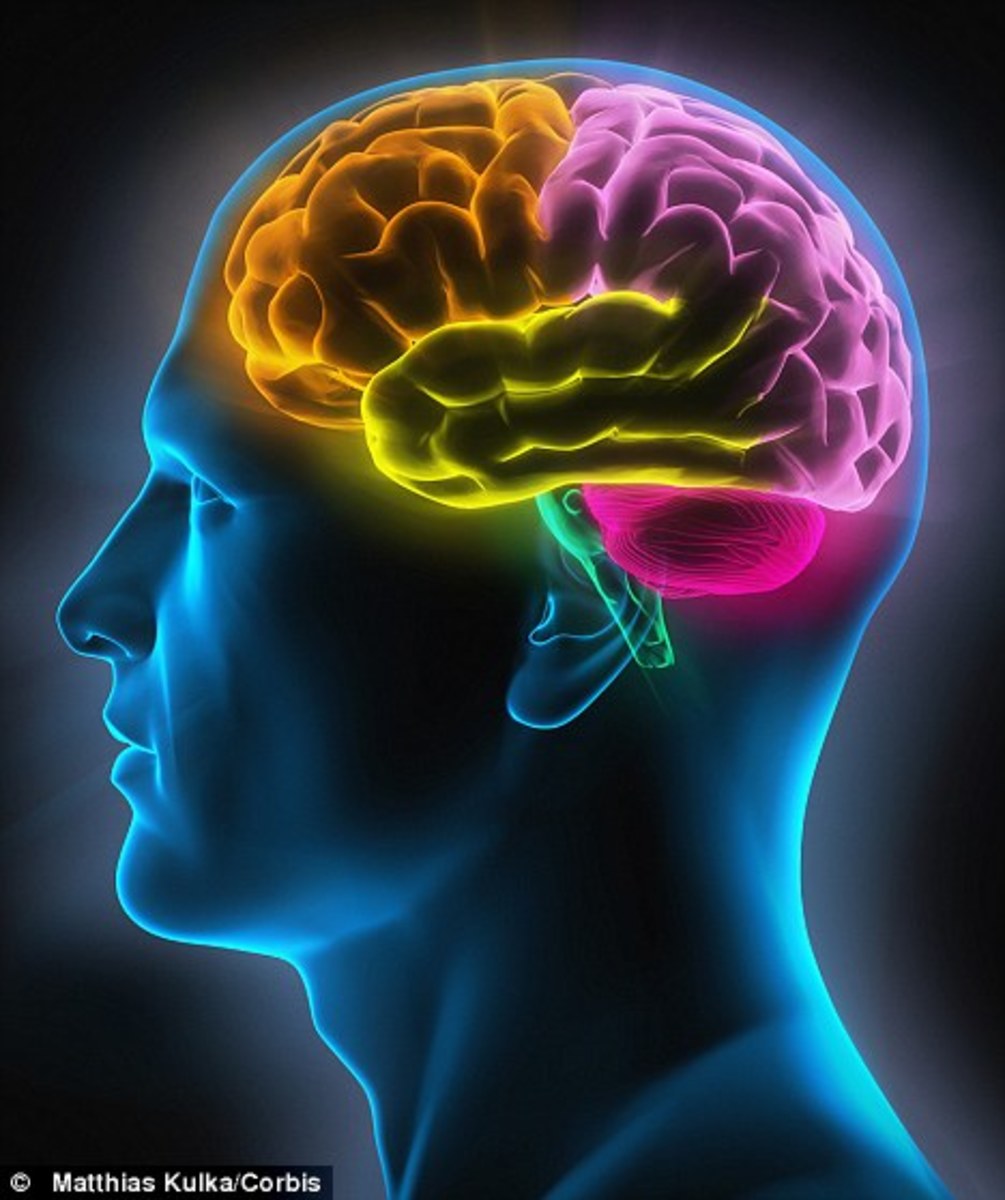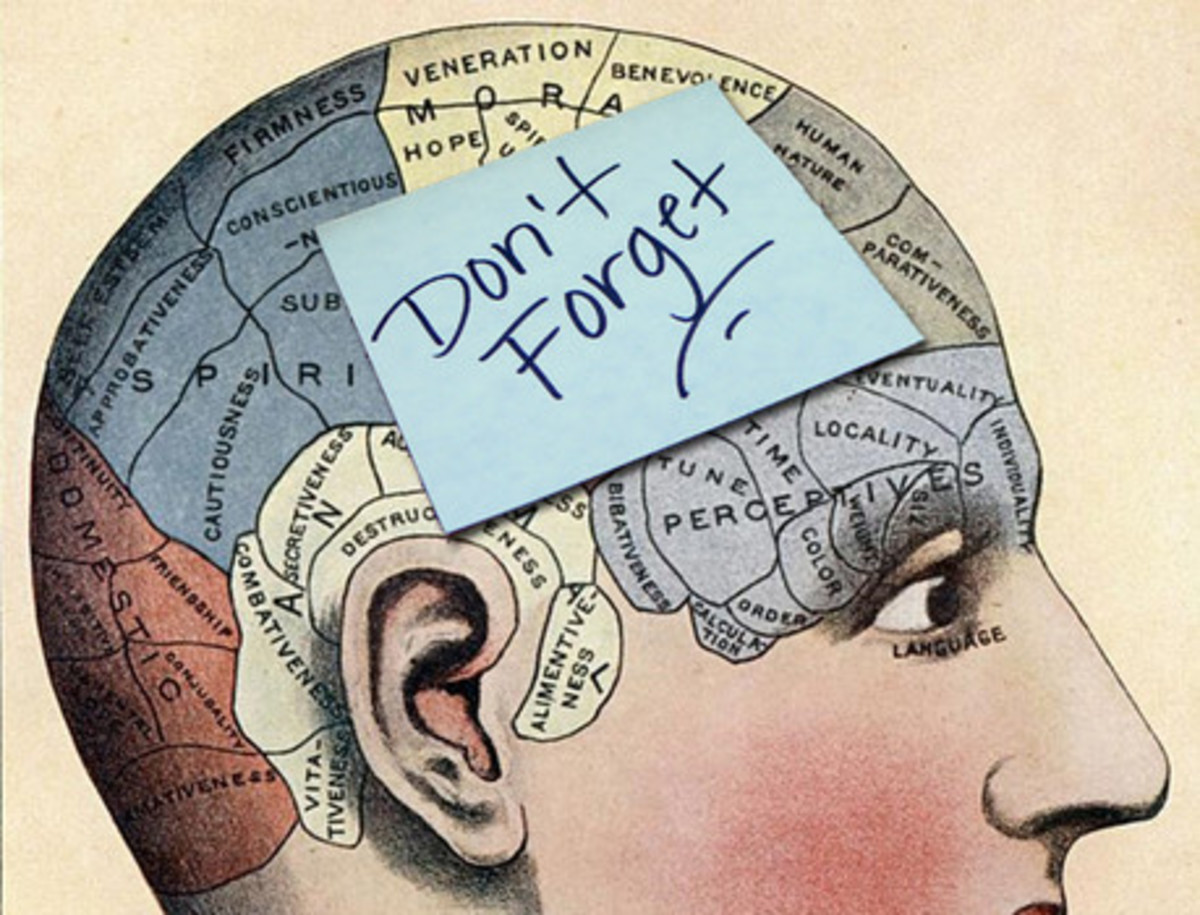What Causes Us to Forget Things as We Age?

Aging and Memory Loss
How many of us have at one time or another associated forgetfulness with getting older? I know I have. I have joked about it with my mother often, especially whens he gets her children's names mixed up. This idea though seems to contradict the belief that with age comes wisdom. In fact many cultures look to the elderly as the wise ones. Interestingly enough, those who do experience memory loss later in life, seem to only lose certain memories.
Episodic memory, which are memories about specific events and experiences in a person's life, are usually the most often forgotten. These memories can include anything from what you ate for dinner last night to your daughters wedding.
Other types of memories that people generally do not lose with aging are semantic memories which involve general facts such as the capital of the state you live in, and implicit memories which are things we are not even consciously aware of. Implicit memories include things like how to ride a bike, or how to tie your shoes.

What causes us to forget as we age?
Just like our bodies, our brains also have to be exercised in order to maintain peak performance. As we get older, we might stop doing the things that are keeping our brains exercised. For instance, once someone retires, they are no longer motivated to remember the things that they had to in order to perform their job.
Keeping active mentally in our advanced years is just as important as staying active physically. There are certainly supplements and diets that each individual should talk to their own doctor about however, mental stimulation is also necessary. There is never a magic pill for anything and nothing comes without hard work.
It's important for us as we advance in age to stay mentally active by doing things such as projects, groups, and even just reading and working on puzzles. I read an excellent book many years ago called Mozart's Brain and The Fighter Pilot. by Richard Restak M.D. This book gives information and exercises for our minds, in order to help our brains reach greater potential. There are several books like this available through your favorite bookstores.

Cognitive Impairment Disorders
In the past, older people who seemed to suffer from deteriorated mental abilities such as memory loss, disorientation and confusion in general were referred to as "senile." This is no longer used today as symptoms typically are attributed to other factors.
Some disorders associated with aging involve degeneration of brain matter which leads to deterioration of intellectual abilities.

Delirium
Delirium is a condition characterized by a confused mental state, usually resulting from shock or fever, accompanied by alterations in attention and by hallucinations, delusions, and incoherence. There are four general causes of delirium; brain disease, a disease or infection in another part of the body that affects the brain, intoxication, and withdrawal from a substance to which an individual is addicted. DT’s is a dramatic form of delirium resulting from excessive alcohol consumption which features tremors, and visual hallucinations that result in a state of terror. DT’s can last for a week or even longer and typically leads to the affected person being hospitalized.

Dementia
Dementia is a progressive atrophy of brain tissue that results in lapses of memory, poor judgment, and disorientation. It is called pre-senile dementia if it occurs before the age of 65 and senile dementia if it begins after age 65.
Alzheimer’s disease which is marked by memory lapses and confusion is the leading cause of mental deterioration among the elderly and is also the most common form of pre-senile dementia.
Picks disease is a type of progressive dementia caused by atrophy of the cerebral cortex, less common than Alzheimer’s it is most likely to develop between the ages of 60 and 70.
Huntington’s disease is a rare hereditary disorder transmitted by a single dominant gene and characterized by progressive degeneration of the brain.
Symptoms for Parkinson’s disease include tremor, muscular rigidity, and a loss of vocal power.
Brain injuries, tumors and infections also can cause dementia and other chronic conditions.

Amnesia
Amnesic disorders are memory disturbances due to either a medical condition or the persistent effects of some chemical substance.
Localized amnesia involves inability to recall events that occurred in a specific period of time.
Generalized amnesia refers to the inability to recall any events of the persons past life.
Continuous amnesia means the inability to recall events that occurred after a specific point in time and extends to the present time.
Systematized amnesia is the loss of memories for certain categories of information, such as those pertaining to a particular place or person.
Factors which determine vulnerability to brain disorders include age, social support, stress, personality factors and physical condition.

My Personal Experience
Memory loss is an extremely stressful and frightening and in some situations even dangerous condition for the person suffering from it as well as friends and family members. My own personal experiences have shown that those who lived active and healthier lifestyles after retirement retained much more of their memories and lived well into their 90s. The individuals I have known who suffered from cognitive impairment memory loss disorders were the ones who after retirement, typically just sat at home and watched tv. Also, the individuals who drank large amounts of alcohol in their later years seemed to experience the most memory loss of all.
REFERENCES
Sarason, B. R., & Sarason, I. G. (2005). Abnormal psychology: The problem of maladaptive behavior (11th ed.). Upper Saddle River, New Jersey: Pearson Education, Inc
Roberts S. Feldman, (2009). Understanding Psychology (9th ed.) Boston: McGraw Higher Education
This content is accurate and true to the best of the author’s knowledge and is not meant to substitute for formal and individualized advice from a qualified professional.
© 2011 Cristina Cakes








